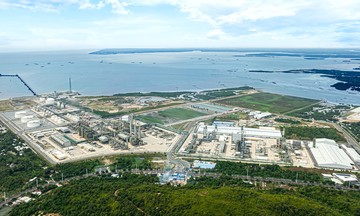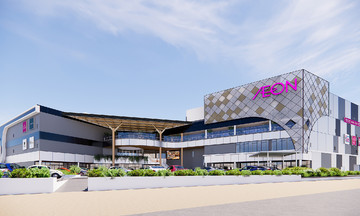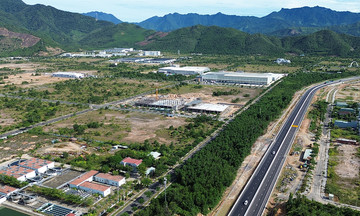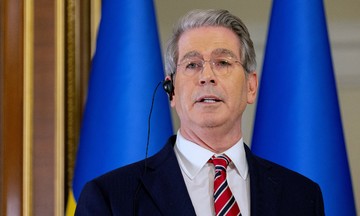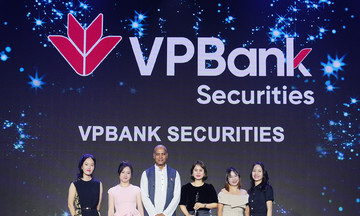In India, consumers are fond of international brands, viewing them as symbols of upward mobility. Recognizing this sentiment in the world's most populous country, many US brands consider India a key market.
For example, India has the largest number of WhatsApp (owned by Meta) users. Domino's is the largest restaurant chain there. Drinks like Pepsi and Coca-Cola dominate store shelves, and people still line up when a new Apple store opens or Starbucks offers discounts.
According to the Office of the United States Trade Representative, India purchased 41.5 billion USD worth of US goods in 2024, a 3% increase compared to 2023. Simultaneously, US services imports reached a similar scale of 41.8 billion USD, a nearly 16% increase.
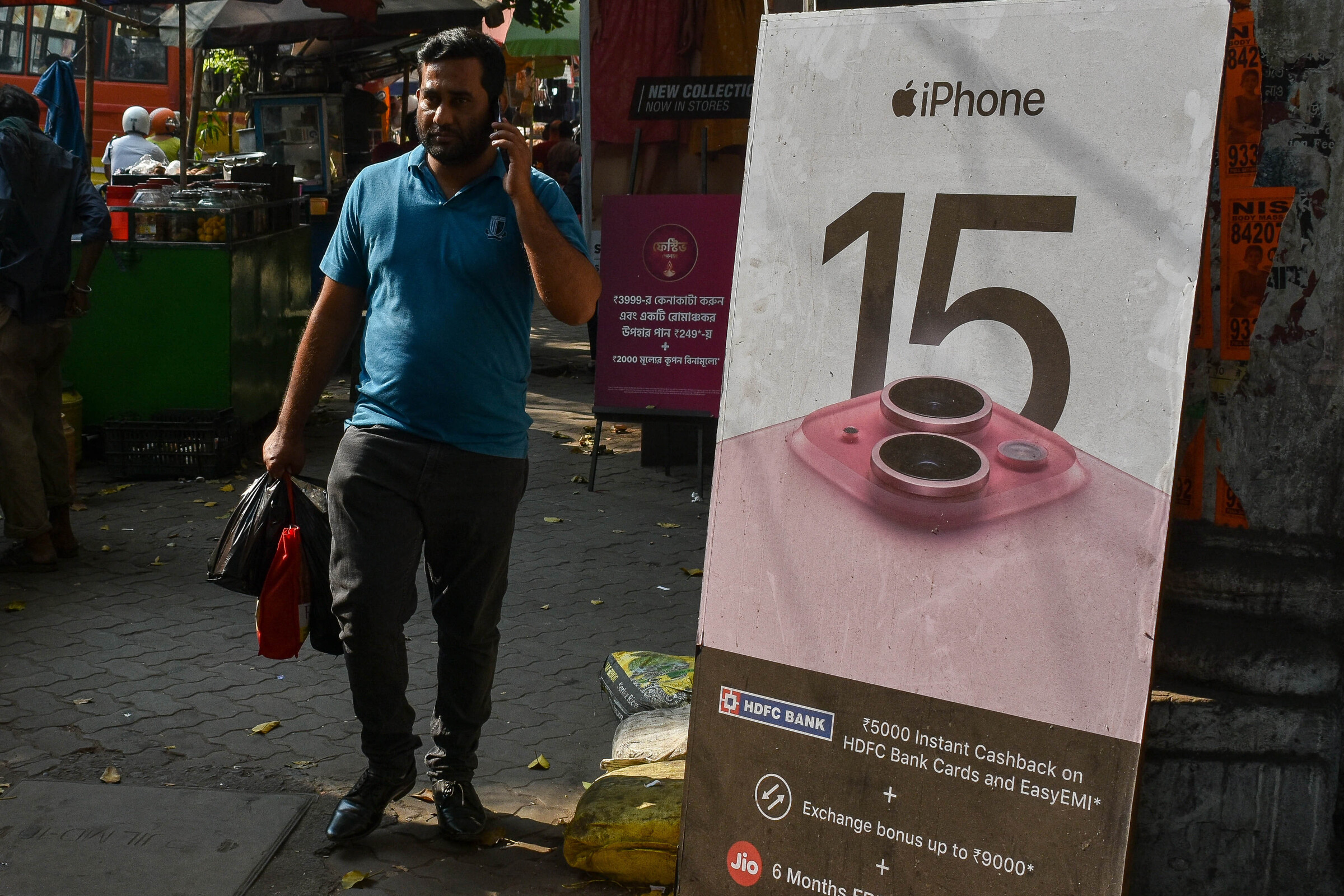 |
Pedestrians walk past an iPhone 15 billboard in Kolkata, India on 6/11/2023. Photo: AFP |
Pedestrians walk past an iPhone 15 billboard in Kolkata, India on 6/11/2023. Photo: AFP
However, on 6/8, former President Trump decided to impose an additional 25% tariff on goods imported from India. Thus, Indian products entering the US, currently subject to a 25% tariff, will face a total tariff of 50% starting 27/8.
This is among the highest tariffs the US has imposed on its trading partners.
The move has sparked resentment among some Indian business leaders and consumers. They are calling for support for domestic goods and less reliance on US products and services. Manish Chowdhary, co-founder of Wow Skin Science, urged support for farmers and startups to turn "made in India" into a "global phenomenon."
The cosmetics brand owner said India should learn from South Korea, a country with globally renowned food and beauty products. "We queue up to buy products from thousands of miles away, proudly spending money on brands that aren't ours, while our own manufacturers struggle for recognition at home," he said.
Rahm Shastry, CEO of DriveU, an on-demand driver service in India, suggested that the South Asian nation should develop its own social media and technology platforms instead of relying on Twitter, Google, YouTube, WhatsApp, and Facebook, similar to China.
Last week, Prime Minister Modi issued a "special call" for self-reliance. Speaking at a meeting in Bengaluru, he said technology companies had created products for the world, but "now is the time we need to prioritize India's needs more." He did not mention any specific companies.
Indian retail companies are competing fiercely with foreign brands like Starbucks in the domestic market, but global expansion remains a challenge. However, India's IT service sector has a strong foothold in the global economy, with names like TCS and Infosys providing software solutions to clients worldwide.
On 10/8, the Swadeshi Jagran Manch group, affiliated with Prime Minister Modi's Bharatiya Janata Party, held small marches across India, urging people to boycott US brands. Ashwani Mahajan, the group's co-coordinator, said the activity aimed to promote nationalism and patriotism.
"People need to be more mindful of Indian products. It will take time for this to become a reality," he said. His team also prepared a list suggesting domestic soap, toothpaste, and beverage brands for consumers to choose as alternatives to foreign goods.
The wave of calls to support domestic goods and avoid US products continues, but there are no signs of impacting brand sales. Tesla even opened its second showroom in India in New Delhi on 11/8.
In Uttar Pradesh, 37-year-old diner Rajat Gupta said he wasn't bothered by the tariff protests and was simply enjoying his 49 rupee (0.55 USD) coffee at a McDonald's, which he considered good value. "Tariffs are a diplomatic matter, and my McPuff and coffee shouldn't be dragged into it," he said.
Phien An (Reuters)






